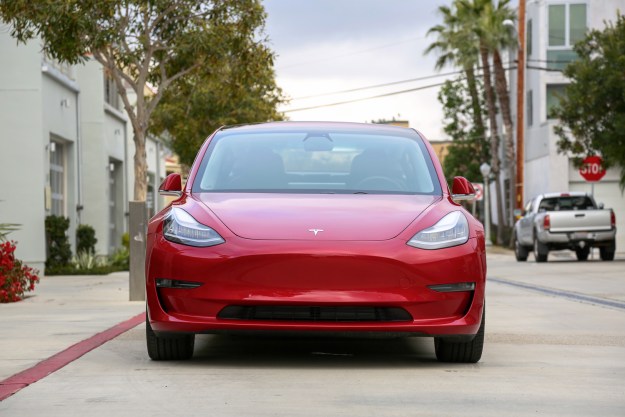Walmart is suing Tesla, claiming that the company’s solar panels caused fires at around seven of the retail giant’s stores. The news comes after Tesla, the California-based electric car manufacturer, was hit by three major, unrelated lawsuits over the course of about as many weeks.
The blazes destroyed merchandise and caused hundreds of thousands of dollars in other damage, Walmart claims in a lawsuit filed in a New York court on August 20.
Targeting Tesla Energy Operations — part of the larger company led by billionaire entrepreneur Elon Musk — Walmart’s lawsuit alleges a breach of contract “arising from years of gross negligence,” as well as “a failure to live up to industry standards” regarding the design, installation, and maintenance of the solar panels on the roofs of around 240 Walmart stores.
Walmart claims that many of the issues “stemmed from a rushed, negligent approach to the systems’ installation” carried out from 2010 by SolarCity, the solar panel company founded by two cousins of Musk, and which Tesla acquired in 2016 for $2.6 billion.
According to the filing, SolarCity’s business model meant that the solar panel systems were installed “haphazardly and as quickly as possible in order to turn a profit, and the contractors and subcontractors who performed the original installation work had not been properly hired, trained, and supervised.”
Walmart claims that the personnel deployed by Tesla to maintain the solar systems “lacked basic solar training and knowledge,” and that some of the installed solar panels contained defects that were “visible to the naked eye or readily identifiable with the proper use of standard equipment.” The lawsuit says that the existence of the apparent defects suggests Tesla “had not been inspecting the sites or that its inspection protocols were woefully deficient.”
The filing also describes “dangerous wire connection practices” and says Tesla failed to keep proper documentation regarding its work at Walmart sites. The retailer wants Tesla to remove its solar panels from all of its stores, and to pay for damage caused by the fires as well as other related costs. Ironically, the lawsuit landed in the same week that Tesla launched a new solar-rental plan for homeowners in six states.
Walmart and Tesla put out a joint statement on Thursday pledging to work together on getting the solar panels up and running, saying they “look forward to addressing all issues and re-energizing Tesla solar installations at Walmart stores, once all parties are certain that all concerns have been addressed.” However, a spokesperson for Walmart told Digital Trends that until a resolution is reached, its complaint will remain on file with the court.
Busy time
Tesla’s lawyers will stay busy in the coming months. In early August, the family of a motorist who died after his Model 3 smashed into a semi truck that ran a stop sign filed a lawsuit against the manufacturer and the other driver. The sedan was reportedly traveling on Autopilot at the time of the accident, yet it didn’t brake to avoid the collision.
Several days later, an angry Tesla owner took the company to court to prove it issued a software update that caps the driving range of older Model S and Model X vehicles by up to 40 miles. The plaintiff claims Tesla took this measure to avoid an expensive battery recall, according to Reuter. Tesla defended itself by saying it sent out another software update to fix the problem.
The third major lawsuit accuses Tesla of not honoring battery warranties on used cars. Plaintiff Hugh Nguyen said his pre-owned 2014 Model S struggles to drive for more than 166 miles on a charge; it should be capable of going over 200. Tesla landed in court after refusing to replace the battery pack because it considered the degradation normal.
Updated 8-23-2019: Added joint statement from Walmart and Tesla.
Editors' Recommendations
- The BMW i4 is more luxurious than the Tesla Model S, and costs way less
- Tesla’s electric Semi truck coming sooner than expected
- Tesla pulls latest Full Self-Driving beta less than a day after release
- Persona 4 Golden on Steam hits 500,000 players in less than a month
- Tesla’s wacky Cybertruck has already become a museum piece


